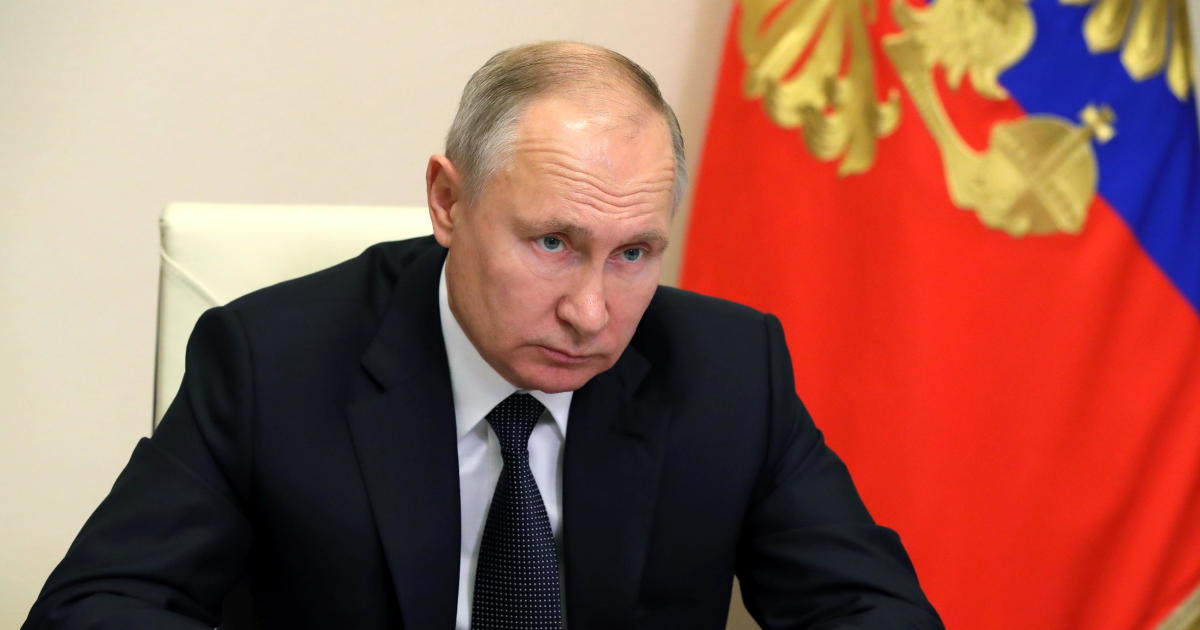
Moscow – Russian President Vladimir Putin has signed a package of controversial new laws that expand government powers to label people and organizations as “foreign agents” and introduce a number of new restrictions on media organizations.
Sputnik / Mikhail Klimentyev / Kremlin
The new laws extend the legislation on “foreign agents” approved in 2012, which have allowed authorities to apply the label to human rights groups and other organizations receiving funding from outside Russia. In recent years, it has led to the closure of some prominent Russian offices of non-governmental organizations, court proceedings and fines. The legislation was updated last year to make it applicable to individuals, including journalists and bloggers.
The amendments signed by the president on Wednesday expand the parameters according to which a person or entity can be officially considered a “foreign agent” in Russia, a term that has negative connotations dating back to the Cold War period.
“Foreign Agents”
By law, Russian or foreign citizens who receive assistance from abroad and carry out political activities “in the interest of a foreign state” must register as foreign agents.
Critics of the legislation point out that the legal definition of “political activity” is extremely broad, including, for example, election monitoring, opinion on state policies (including comments on social media), and participation in meetings.
The definition gives authorities the scope to exercise the law against almost any voice of dissent before next year’s parliamentary elections.
Amnesty International condemned the bill last month, warning it was pointing to “a new witch hunt” in Russia.
“It exposes the Russian authorities’ belief that civil society actors are ‘destructive agents of the West’ trying to destabilize the government,” said Russia’s Amnesty International researcher Natalia Prilutskaya. “Russian authorities have already financially killed civil society and forced many organizations to shut down. Now, they are further demonizing individual activists.”
Under the expanded law, foreign journalists can be added to the official list of foreign agents if state officials decide they have done something “incompatible with a journalist’s professional activities.”
“Foreign agents” are subject to restrictions, including financial reporting on their activities and identifying themselves as such in publications in Russia. A separate bill signed by Putin on Wednesday imposes sanctions ranging from fines to up to five years in prison for designated foreign agents who do not record or report on their activities as required.
Parliamentarian Vasily Piskarev, co-sponsor of the bill, defended the initiative and insisted that “the sovereignty of the Russian Federation and the prevention of interference in the internal affairs of our state” must be protected.
Earlier this week, the Ministry of Justice added a major support organization Russian victims of domestic violence, Nasiliu.Net, on its list of “foreign agents”, provoking the outrage of rights activists. The ministry also added five people, including veteran rights activist Lev Ponomaryov, 79, a longtime critic of Putin, to the list of foreign media agents, along with four others, including a journalist from Putin. Radio Free Europe / Radio Liberty.
Restricting the press and everyone else
Putin ended the year by signing dozens of bills on Wednesday, many of which are expected to further consolidate his government. One of them gives Russian regulators powers to totally or partially block Internet platforms that “discriminate” against state media.
Law sponsors cited state-affiliated media complaints about Facebook, Twitter and YouTube over the treatment of prejudice. Currently, Twitter labels some Russian media as “state-affiliated media,” which have been criticized by Moscow officials. YouTube has blocked some pro-Kremlin channels this year, a move the Russian authorities have ridiculed as an “act of censorship.”
The authors of the bill said it was aimed at targeting foreign social media, but it can also be used against Russian platforms.
Another law passed by the president prohibits holding political rallies near emergency services buildings, such as police stations or buildings belonging to intelligence agencies.
Sharing personal data or information about the work of intelligence agents or police agencies is now a criminal offense, an initiative seen as a reaction to recent media investigations led by the Bellingcat organization, which used leaked data to reveal the names, photos and telephone numbers of FSB agents allegedly involved in the intoxication of opposition leader Alexei Navalny.
